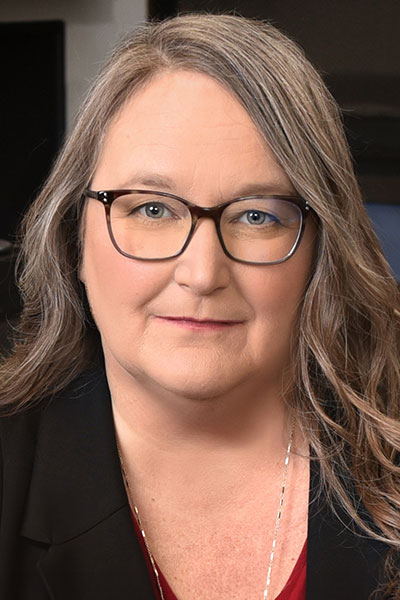Autoimmune diseases represent a significant and growing health concern globally. The increasing prevalence of more than 100 incurable autoimmune disorders highlights the urgent need for research focused on disease pathogenesis, refined molecular features, and development of more effective targeted therapies.
In the ACR Convergence 2024 session ACE-ing the Test: Mechanistic Studies Enhance Clinical Trials — The Autoimmunity Centers of Excellence Experience, which will take place on Saturday, Nov. 16, in Room 102AB of the Walter E. Washington Convention Center, a panel of experts will share findings from their work with the Autoimmunity Centers of Excellence (ACE) community’s collaborative basic and clinical research programs.

“I’m excited to talk about the work that is part of ACE, which is funded by the National Institute of Allergy and Infectious Diseases (NIAID),” said Judith James, MD, PhD, Professor of Medicine at Oklahoma University Health Sciences Center and Program Chair for the Arthritis and Clinical Immunology Research Program at Oklahoma Medical Research Foundation (OMRF). “The ACE initiative is focused on how we can maximize the information gathered from clinical trials and foster collaborative clinical and basic research in the autoimmune disease space.”
Dr. James will speak about the clinical study of mycophenolate mofetil (MMF) withdrawal in patients with quiescent systemic lupus erythematosus (SLE), focused on the appropriate time and approach to stop medication.
“We found that many patients who had been on it for two or more years and had clinically quiescent disease could stop the medicine,” she said. “However, some patients did experience disease reactivation. We are conducting molecular studies to try and understand whether we can identify, a priori, patients who are at risk of disease flares and should stay on MMF or another medication.”
Dr. James will also discuss clinical factors impinging on treatment decisions and the role of the new definition of remission in SLE (DORIS) criteria in defining quiescence as well as estimating low likelihood of disease reactivation.
Prolonged MMF therapy is associated with increased risk of infection, malignancies, gastritis, miscarriages, and severe birth defects. These adverse effects, especially teratogenicity, are a significant concern for patients with SLE, a majority of whom are young women of childbearing age. Understanding the molecular mechanisms underlying disease reactivation and flares will provide valuable insights into directed therapeutics, Dr. James said.
In their molecular analyses, Dr. James and colleagues have assessed auto-antibodies, gene co-expression modules, genetic markers, immune phenotyping, and single-cell analyses on samples from the patients in the SLE trial. Dr. James said that these multimodal technological queries can help identify patients who can safely stop mycophenolate and pinpoint molecular factors associated with flares.
Dr. James will also share insights from a study focused on Sjögren’s syndrome.
“Like lupus, Sjögren’s is also clinically heterogeneous and understanding that heterogeneity at the molecular level may help us identify different pathways for developing targeted therapies,” she said.

Irina Matei, PhD, Assistant Professor at Weill Cornell Medicine, will speak about extracellular vesicles (EVs) as biomarkers of disease heterogeneity and treatment response in systemic autoimmune diseases. She and her mentor, David Lyden, MD, PhD, renowned EV biology expert, have been collaborating with Virginia Pascual, MD, Director of the Drucker Institute at Cornell, Dr. James, and other ACE members over the past six years.
“One of the challenges in treating autoimmune diseases is their cyclical nature, where disease reactivates in waves of flares with intermittent periods of remissions,” Dr. Matei said.
Working with Dr. James and Joel Guthride, PhD, at the OMRF, Dr. Matei and colleagues have analyzed samples from patients enrolled in SLE clinical studies to identify markers that can predict flares in patients who have stopped immunosuppressive therapies.
“Another challenge in autoimmune disease is involvement of specific target organs — for instance, lupus nephritis (LN) is a common and serious complication in SLE, which can cause kidney failure and require management with kidney transplant,” Dr. Matei said.
Dr. Matei and colleagues are seeking to identify biomarkers associated with LN risk, including in pediatric SLE. Dr. Matei has been studying EVs, a class of secreted factors, for over a decade. EVs are a heterogeneous class of vesicles released by all cell types and serve as an evolutionarily conserved mode of intracellular communication.
“EVs are reflections of the cells they come from, but they can also be enriched for proteins or other biomolecules relative to the cell of origin,” Dr. Matei said. “EVs are robust biomarkers, such as in cancer, as they can be sampled readily using liquid biopsies, are amenable to longitudinal sampling and stable in frozen plasma.”
Dr. Matei and colleagues have applied their expertise studying EVs in cancer to interrogating their function and biomarker potential in autoimmune diseases.
“One of the main messages I would like to convey to the community of rheumatologists and autoimmune disease experts is that, in terms of biomarkers, EVs from plasma or other biofluids — urine from patients with LN, or perhaps CSF (cerebrospinal fluid) from patients with multiple sclerosis — can provide non-redundant, complementary information to the knowledge obtained by studying immune cells and other secreted factors such as cytokines and chemokines,” Dr. Matei said.
EV profiles are a complementary repository of biological information, in addition to what can be learned by profiling immune cells, across systemic diseases. Studying EV composition and function can further our understanding of the biology of affected organs and their interaction with other organ systems, Dr. Matei explained.
Kevin Deane, MD, PhD, Professor of Medicine-Rheumatology at the University of Colorado Denver Anschutz Medical Campus, will discuss predicting disease progression in rheumatoid arthritis.

Registered ACR Convergence 2024 Participants:
Watch the Replay
Select ACR Convergence 2024 scientific sessions are available to registered participants for on-demand viewing through October 10, 2025. Log in to the meeting website to continue your ACR Convergence experience.
